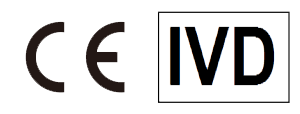AnteMEL is a genetic test that assesses risk of developing skin melanoma using polygenic risk score (PRS) technology. It is a clinical tool that estimates the melanoma risk level of an individual for precise and efficient prevention and screening. Its aim is to reduce melanoma morbidity and mortality. AnteMEL test is recommended for men and women between the ages of 18 and 70.
About AnteMEL
-
About the AnteMEL Test
AnteMEL is a clinical test registered as a CE-marked medical device (in vitro diagnostics, IVD) in the EUDAMED database (UDI-DI: 04745010362033), in the Estonian Medical Devices Database (EMDDB code:14950), and the UK MHRA Registry (GMDN code: 59923).

The test results provide information about the individual’s polygenic risk level for melanoma. This includes a melanoma-specific PRS value, the absolute risk for melanoma in the next 10 years, and the relative risk in comparison to other women and men in the same age group and population on average.
Depending on the application, the test report may include individual clinical recommendations to reduce the risk of developing melanoma such as:
- What age the individual should start melanoma screening and how
- Whether the individual should take additional measures to prevent melanoma
- What possible changes and symptoms regarding his/her skin should the individual focus on.
-
Aim of the AnteMEL Test
The purpose of the AnteMEL test is to reduce the risk of premature mortality from melanoma. It provides more precise recommendations for melanoma screening and additional preventive measures. Melanoma risk stratification increases the precision and efficiency of methods in melanoma prevention. The AnteMEL test incorporates PRS technology into melanoma prevention programs, enabling targeted recommendations for more efficient primary and secondary prevention.
-
AnteMEL Test Methodology
For the PRS calculation, AnteMEL uses the patient’s DNA data from genotyping and summarizes the impact of 28 melanoma-related single nucleotide polymorphisms (SNPs).
To develop the AnteMEL test, different PRSs and their risk differentiation estimations were validated using anonymous data from the UK Biobank. Based on large-scale genetic data, various risk prediction models published in the international scientific literature were compared. The prediction accuracy of the best- performing model was evaluated on independent data and developed further for the test (1). The risk score underlying AnteMEL is derived from Fritsche et al. (2), which combines genetic variants known to be associated with melanoma in the NHGRI-EBI GWAS Catalog with those found in the Michigan Genomics Initiative (3).
The test is based on genome-wide association studies of patients and study participants of primarily European ancestry. However, the test is adapted to other ethnicities based on the analyses of risk performance in the ethnically diverse UK Biobank data.
AnteMEL has been developed by the health-tech company Antegenes and is performed by Antegenes’ medical lab.
-
AnteMEL Test Limitations
- AnteMEL cannot be used to diagnose melanoma.
- High risk does not necessarily mean that the patient will develop melanoma during his/her lifetime.
- Moderate or lower risk does not necessarily mean that the patient will never develop melanoma during his/her lifetime.
- AnteMEL test results are individual and patient specific. The AnteMEL test does not assess the risk for the patient’s family members or relatives. The inheritance pattern of PRS is complex and each person has to be tested separately.
- AnteMEL does not analyse rare monogenic pathogenic variants in genes that significantly increase the risk of melanoma, such as CDKN2A, MC1R, CDK4, TP53, PTEN, BAP1, POT1, ACD, PARK2, TERF2IP, TERT, BRCA1, BRCA2, RB1, and others. If patient’s biological relative has a monogenic pathogenic variant in these genes, or if a patient has melanoma cases in his/her family, Antegenes recommends additional counselling and testing for such monogenic variants.
- AnteMEL test is based on the most recent scientific data, which may be supplemented and/or changed in the future if additional information becomes available. The field of genetics is constantly evolving, which may lead to changes in risk assessments over time, changes in test selection, and clinical recommendations.
- Different polygenic risk scores predicting risks of the same trait may give different estimates of the individual’s risks due to differences in the genetic variants included in these models and their weights.
- The results of this test should be applied in combination with other relevant clinical data. In addition to genetic predisposition, other risk factors influence the risk of developing melanoma.
